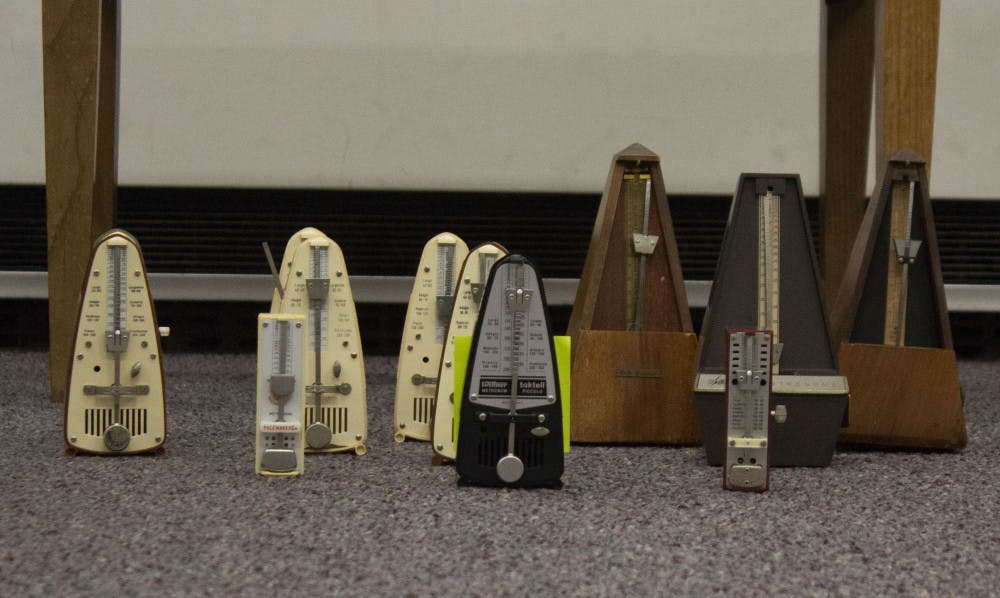When musicians sit down to play, it’s not uncommon for a metronome to help set a pace for the performance. But the metronomes of today are often housed in digital apps.
Amelia Kaplan wants to change that.
Since the summer, Kaplan, associate professor of music composition, has been tracking down 100 metronomes to perform “Poème Symphonique,” a 1962 composition by György Ligeti.
“All of our concerts are going to be partially dedicated to the centenary. So, we're doing this in all kinds of ways, actually doing that piece was one of the first ones just because it's has 100 metronomes. So, we were looking for pieces that had to do with the number 100,” Kaplan said.
Currently, she’s gathered around 25-30 metronomes from staff members and places around campus. Now, she’s focused on securing the rest from a California rental company for the 7:30 p.m. Dec. 6 performance in Sursa Hall.
Although the concert was originally planned for Oct. 17, Kaplan said another group was using the metronomes during that time. In order to cut costs of the performance, Kaplan said renting the devices will be cheaper — metronomes can cost anywhere from $20-$70 for standard models.
For the university’s centennial year, Kaplan tasked members of the New Music Ensemble that she oversees to find scores related to the number 100. Those pieces could feature 100 notes, 100 measures or could even been written 100 years ago.
Additionally, composers were tasked to write a score relating to the centennial to perform during its April concert.
“It's better with these things, especially when you're asking people to write things, to be really open about it because when you get really constricting and you're asked to write a piece with a really specific kind of thing, I find sometimes those pieces end up not being the best pieces,” Kaplan said.
Typically, Kaplan said the ensemble tends to stick to music from the past 10-15 years, however, the centennial offered an opportunity to revisit some of the classics. Nonetheless, she said she likes to challenge the musicians with performances that tend to be more modern.
A couple of years ago, she tasked musicians to take part in a 14-hour composition, where they repeated the same three lines of music 640 times. The hardest part, she said, was finding a place to do it.
“I think it's fun to always do something like that every year. You don't hear a lot of things like that [at] Ball State. I mean, you're more likely to see that in San Francisco or New York or something like that,” Kaplan said. “It's good to experience these kind of performance, art performances.”
Contact Mary Freda with comments at mafreda@bsu.edu or on Twitter @Mary_Freda1.





